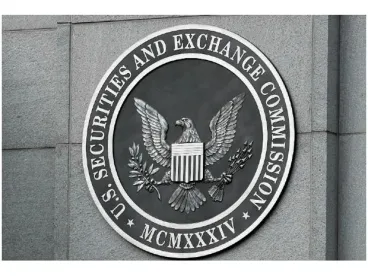Those hoping for updated SEC guidance that would relieve or reduce companies’ conflict minerals diligence and disclosure obligations for calendar year 2016 got only a fraction of what they wanted. Last Friday, April 7, 2017, the SECs Acting Chair Michael Piwowar issued a statement that said “it is difficult to conceive of a circumstance that would counsel in favor of enforcing” the requirements that companies file a Conflict Minerals Report or (if required) provide an independent private sector audit (IPSA) relating to its due diligence.
On the same day, the SEC Division of Corporation Finance issued a statement that it would not recommend enforcement if a company files only a Form SD describing its reasonable country of origin inquiry and whether any of its conflict minerals originate (or may originate) from a covered country. The SEC Staff went on to warn that its statement was subject to further action by the Commission, was related to enforcement action only, and was not a statement of a legal conclusion. This statement is very different from the April 2014 SEC Statement, which provided affirmative guidance and told companies what they should do and what the SEC expected to see in the filings.
Importantly, the statements by the Acting Chair and the SEC Staff did not alter companies’ obligations to determine whether they are subject to the conflict minerals rule, to undertake a reasonable country of origin inquiry, or to file the Form SD. And, the statements did not change the important existing guidance that a reporting company does not have to obtain an IPSA as long as it does not claim that any product is “DRC conflict-free.”
Threats to the Conflict Minerals Rule
It’s true that in his January 31, 2017 statement, Acting Chair Piwowar directed the SEC Staff to consider whether the guidance included in the April 2014 SEC Statement “is still appropriate and whether any additional relief is appropriate.” He also sought (and then received) public comment on all aspects of the conflict minerals rule and the existing guidance. It’s true that in early February, there were hints (via a leaked draft executive memorandum) that the Trump Administration would take action to suspend the conflict minerals rule for up to two years. It’s true that the legal challenge to the conflict minerals rule is now concluded, and the SEC needs to reconsider the rule in light of the Court of Appeals’ First Amendment ruling. It’s true that some of the April 5, 2017 testimony before the US Senate Commission on Foreign Relations, Subcommittee on Africa and Global Health Policy questioned the effectiveness of the rule and the private sector’s 3TG responsible sourcing efforts. It’s true that the GAO’s April 5, 2017 Statement indicated that the US Department of Commerce still has not completed several required actions in support of the conflict minerals rule.
Responses to Threats
But, since early February 2017, we have seen no further action on the leaked draft executive memorandum. In late March, a group of US Senators submitted a letter to the Inspector General of the SEC asking him to conduct an investigation into Acting Chair Piwowar’s actions and statements on the conflict minerals rule, claiming that he exceeded his authority in issuing them. It is possible that members of Congress or Senators will question these recent statements as well. NGOs and activists continue to advocate for the continuation of the rule, citing improvements in responsible sourcing of tin, tantalum and tungsten and the importance of private sector activity to break the link between armed groups and sourcing of minerals.
Limited Impact of the Statements
Last week’s statements did not provide clear relief from reporting companies’ obligations. They merely indicated that the SEC Staff would not recommend enforcement action against companies that fail to include a Conflict Minerals Report and, if required, an IPSA as exhibits to their Form SDs. If a company decides not to file a Conflict Minerals Report, that decision will not reduce much of its current compliance burden. For most companies, the supplier outreach and analysis, risks assessment and mitigation steps relating to calendar year 2016 have already been completed. And, even if the rule is ultimately suspended or repealed entirely, companies may want to have one last opportunity to describe their conflict minerals diligence and risk mitigation efforts in a Form SD filing. Many companies (especially in certain industries) will likely continue to post some form of an annual Conflict Minerals Report on their websites if the conflict minerals rule is repealed.
Proceed With Caution
Although the Form SD is an SEC filing, the Commission is not the most important audience for the conflict minerals disclosure. NGOs, activists, socially responsible investors and consumers will continue to expect and read the conflict minerals disclosure regardless of any SEC enforcement decision. Those stakeholders may publicly criticize companies that rely on the SEC Staff’s statement as a justification for not filing a Conflict Minerals Report. So, last week’s statements by the Acting Chair and the SEC Staff could be marked “Proceed With Caution.”




 />i
/>i
